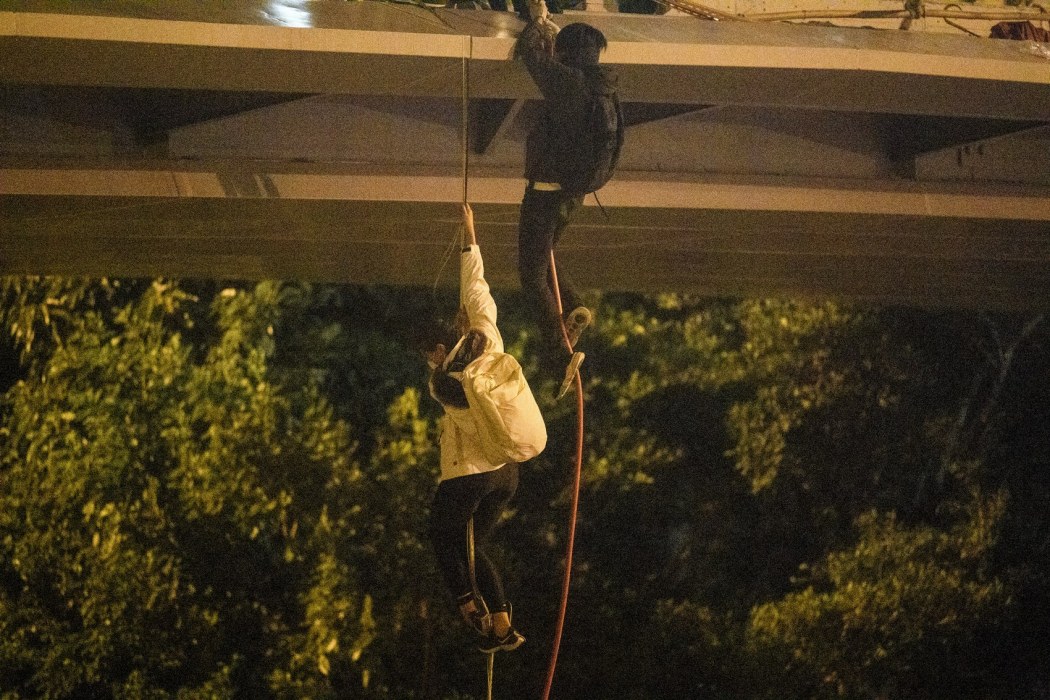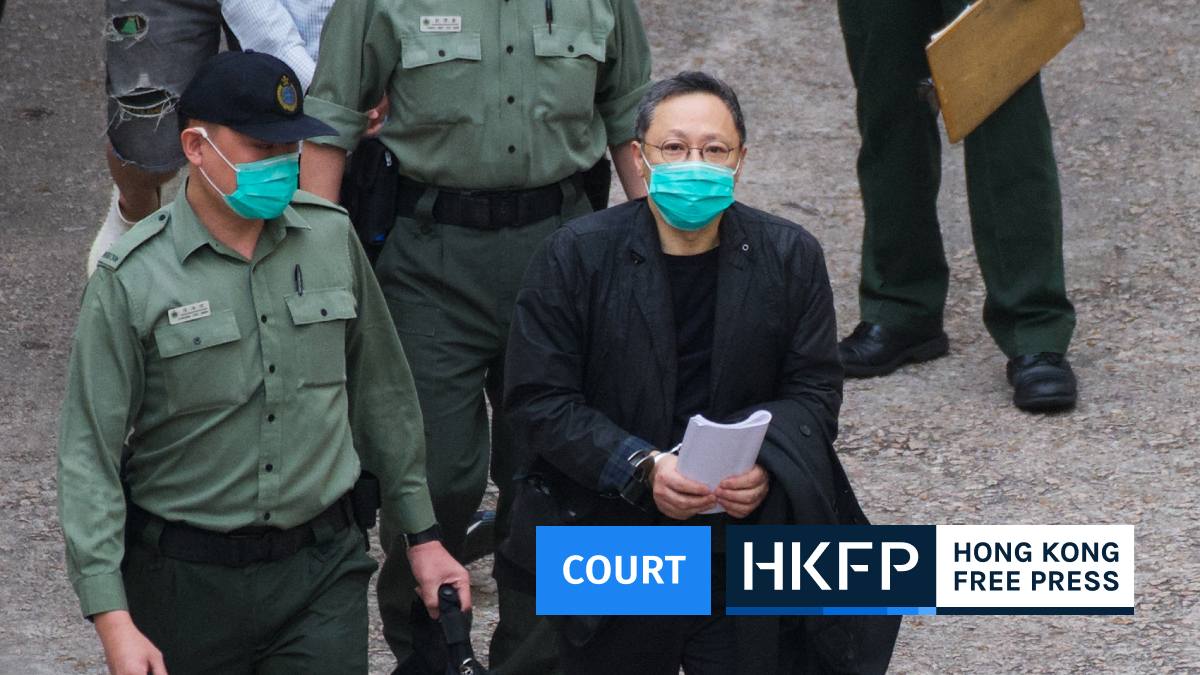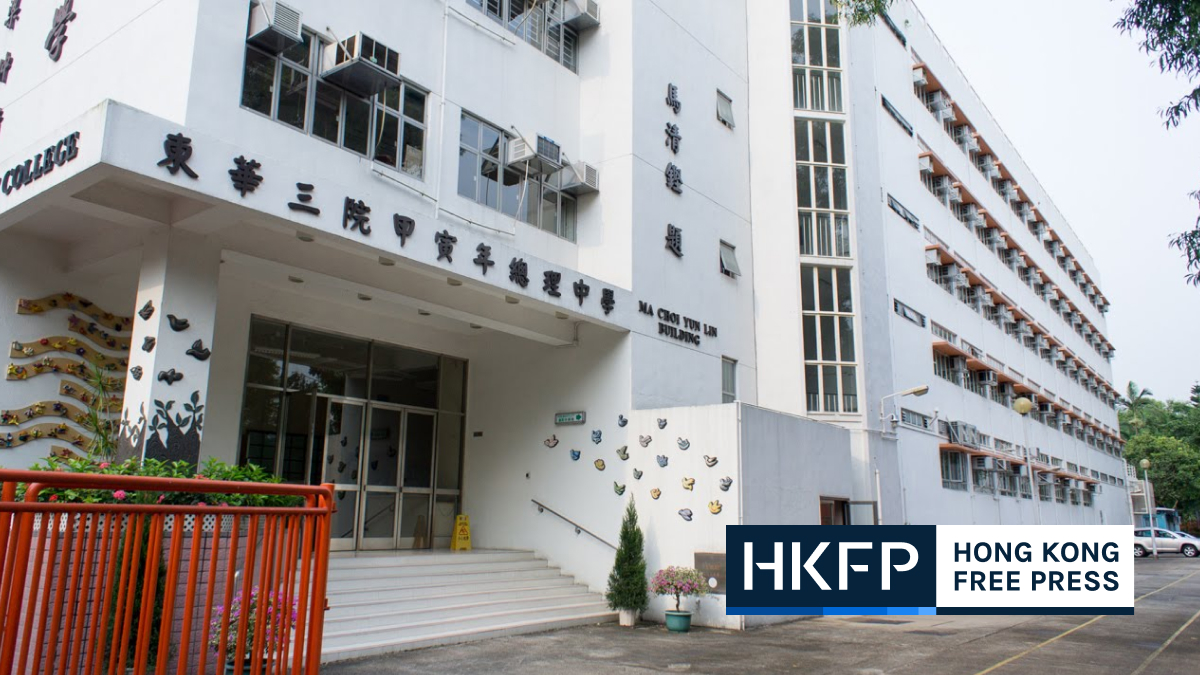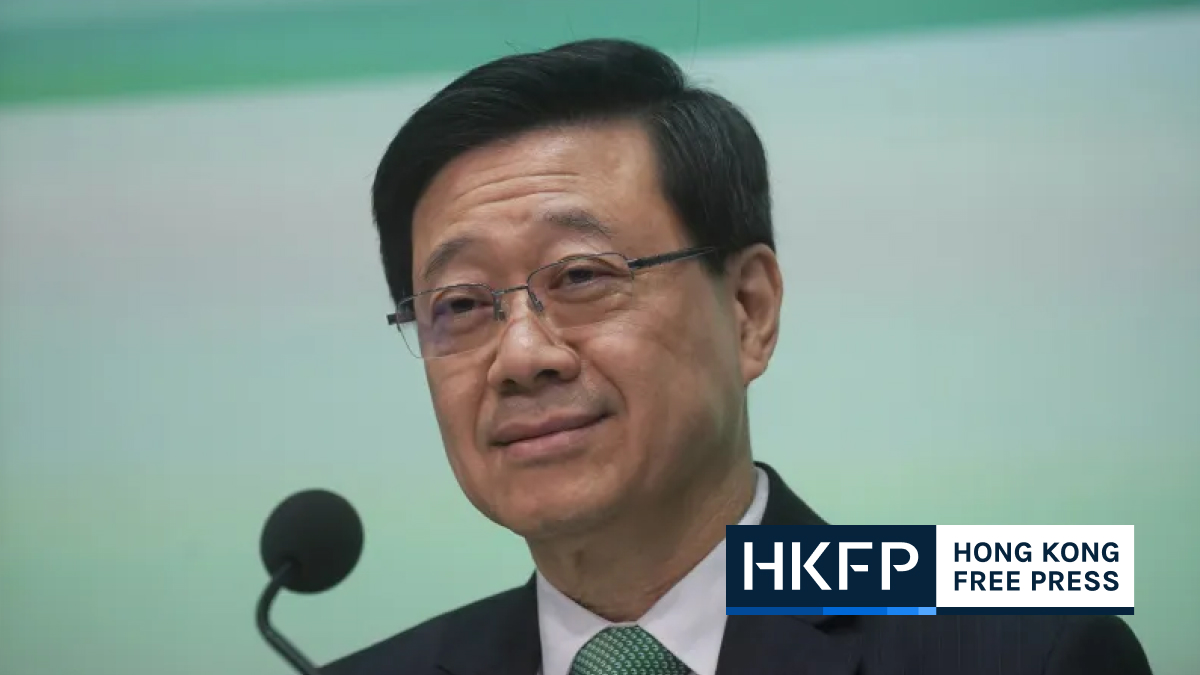Seventeen people have received jail sentences ranging from one year and eight months to five years and 10 months after they were convicted over dramatic rope escapes from a besieged Hong Kong university during the 2019 protests.

District Judge Lily Wong on Tuesday meted out prison terms to 17 people who were involved in daring attempts to flee the Hong Kong Polytechnic University (PolyU) in mid-November 2019.
Dozens of protesters shimmied down ropes from a footbridge to flee the campus in Hung Hom, which was surrounded by the police amid violent clashes between protesters and officers. Some people drove cars and motorcycles to pick up the protesters, and many vehicles were intercepted by police as they tried to leave the scene.
Lin Bin, Chan Chun-fung, Mak To and Lee Man-hei, who pleaded guilty to rioting before the trial began, were each jailed for three years and eight months. A charge of perverting the course of justice earlier levelled against them was put on court file and was not pursued by the prosecution.
The remaining defendants were convicted of intending to pervert the course of justice after trial.
Ng Wai-nam, Leung Cheuk-fung, Leung Wing-yan, Lau Shuk-wa, Tom Wong, Lam Yam-to, Cheok Yuen-yi and Lai Ching-yin were also found guilty of rioting. All but Cheok were sentenced to 70 months behind bars. Cheok’s jail term was reduced to 60 months because she was a minor at the time of the offence.

Ho Ying-kit, Sin Wang-chun, Lam Sze-nga and Cheung Chung-hee, who only faced the perverting justice offence, were each jailed for 20 months.
Chan Chun-yeung, who pleaded guilty to an additional charge of dangerous driving, was given a two-year prison term.
The case originally involved two more defendants, who were earlier sentenced to a training centre.
In jailing the defendants, Wong said the authorities had issued daily warnings urging the public not to go to PolyU. The defendants had been “stubborn” and ignored such warnings, the judge said, concluding that they must have been on the side of the “black-clad” protesters.
“They agreed with the violence,” Wong said in Cantonese, adding that some defendants who had been PolyU students were responsible for “destroying their school campus.”

The judge went to say that the defendants had tried to evade arrest with their escape attempt, which “seriously undermined the administration of judicial justice.”
Under Hong Kong laws, rioting is punishable by up to ten years in prison, although jail terms meted out by the District Court are capped at seven years.
Tuesday’s sentencing was held in the court’s largest courtroom, designed to hold up to 50 defendants and in which the view of the dock is partially restricted. Those sitting in the seats on the right-hand side of the courtroom must rely on a video livestream to get a clear view of the judge and the defendants.
As a result, family members and friends of the defendants had to stand up from their seat or swarm to the back of the counsels’ desk to wave at their loved ones. Some also made a heart gesture with their hands.
Protests erupted in June 2019 over a since-axed extradition bill. They escalated into sometimes violent displays of dissent against police behaviour, amid calls for democracy and anger over Beijing’s encroachment. Demonstrators demanded an independent probe into police conduct, amnesty for those arrested and a halt to the characterisation of protests as “riots.”
Support HKFP | Policies & Ethics | Error/typo? | Contact Us | Newsletter | Transparency & Annual Report | Apps
Help safeguard press freedom & keep HKFP free for all readers by supporting our team

LATEST FROM HKFP
HKFP has an impartial stance, transparent funding, and balanced coverage guided by an Ethics Code and Corrections Policy.
Support press freedom & help us surpass 1,000 monthly Patrons: 100% independent, governed by an ethics code & not-for-profit.









